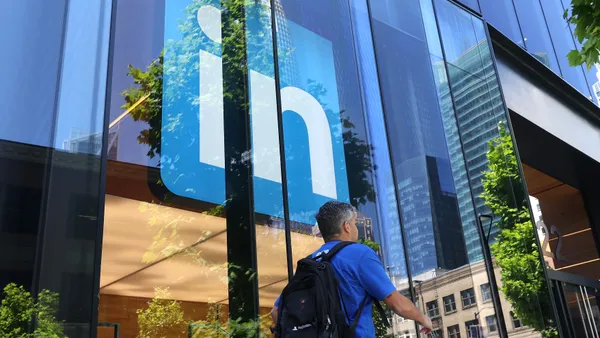Dive Brief:
- JPMorgan Chase will undertake a $350 million, five-year global initiative to prepare for the future of work and meet the growing demand for skilled workers, it announced Monday. The investment will "provide substantial support to community college and other non-traditional career pathway programs."
- The company said it hopes to create economic mobility and career opportunities for underserved populations while also attempting to forecast emerging skill sets for its employees and develop related training programs.
- "The new world of work is about skills, not necessarily degrees," said Jamie Dimon, the company's chairman and CEO, in a statement. "Unfortunately, too many people are stuck in low-skill jobs that have no future and too many businesses cannot find the skilled workers they need. We must remove the stigma of a community college and career education, look for opportunities to upskill or reskill workers, and give those who have been left behind the chance to compete for well-paying careers today and tomorrow."
Dive Insight:
A 2018 Mercer report concluded that organizations must take steps like these to prepare for the future of work. Specifically, employers will need to: (1) embrace agility; (2) inject a greater "sense of purpose" into the employee value proposition; (3) reconsider how work is done and by whom; and (4) match the supply of skills with demand to get the most out of employees' talents and ambition.
In good news for employers, studies show that career development is among workers' most-sought-after benefits, along with higher pay, flexible work options and paid family leave. But many employees don't know exactly where they want to be in future, according to LinkedIn, creating an opportunity for employers like JPMorgan to identify needs and help guide workers toward skills that will be in demand.
Building a future-ready workforce is a key component of JPMorgan's retention strategy, Robin Leopold, the company's head of HR, said in a statement. "That is why we are proactively identifying the skills we need and understanding the skills and education our employees have. We know that approximately 75 percent of the U.S. roles we posted in 2018 did not require a college degree. We continue to provide our employees with good wages and benefits, and are investing further in their continued skills training and education so that they can continue to grow their careers with us."









